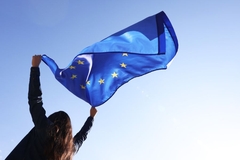AI-powered makeup software is shaping beauty marketing, study finds

A recent study analyzed the psychological factors influencing the adoption of AI-based makeup software in cosmetics marketing, shedding light on how digital tools shape consumer behavior. The findings reveal that users with negative body image, price sensitivity, and social media addiction are more likely to engage with AI-powered beauty applications.
Iran-based researchers from the Faculty of Medical Sciences, Golestan University, and Malayer University surveyed 384 social media users who engage with AI-powered makeup software. Personal Care Insights speaks to contributing author Behzad Sanjari Nader, Faculty of Medical Sciences, about how AI-driven technology is proving to be a significant asset in cosmetics marketing.
“The beauty industry is one of the areas where AI has been able to take the most important steps for change and impact,” he tells us.
Virtual try-ons and personalized AI recommendations are becoming valuable tools for beauty brands, allowing them to tap into emerging digital strategies that can create deeper consumer engagement and increased sales.
AI for sales and marketing
According to the study, consumers who engage with AI makeup software are around 40% more likely to buy the product compared to those who do not use the tool. This demonstrates their effectiveness in bridging the gap between virtual trials and physical sales.
Another finding is the role of AI makeup tools in driving electronic word-of-mouth. Consumers who use AI-generated makeup experiences are more likely to share their opinions online, which the study says influences their social circles.
The findings indicate that AI-enhanced beauty software has an indirect effect of +0.192 on eWOM through actual purchases, suggesting that digital beauty tools play a major role in modern marketing strategies.
 Consumers who engage with AI makeup software are around 40% more likely to buy the product compared to those who do not use the tool.The impact of AI extends beyond individual purchases. With AI-powered platforms collecting large amounts of consumer data, the study urges brands to tailor their marketing strategies based on real-time user preferences via these platforms. Researchers suggest this can inspire hyper-personalized campaigns — especially integrated with social media — targeting specific audiences, which could increase brand loyalty and long-term engagement.
Consumers who engage with AI makeup software are around 40% more likely to buy the product compared to those who do not use the tool.The impact of AI extends beyond individual purchases. With AI-powered platforms collecting large amounts of consumer data, the study urges brands to tailor their marketing strategies based on real-time user preferences via these platforms. Researchers suggest this can inspire hyper-personalized campaigns — especially integrated with social media — targeting specific audiences, which could increase brand loyalty and long-term engagement.
AI changing consumer behavior
The study used a questionnaire-based approach to collect data on participants’ psychological traits. The responses were analyzed using structural equation modeling, a statistical technique that identifies relationships between different factors.
The findings revealed significant correlations: individuals with negative body image (+0.23), high price sensitivity (+0.15), and social media addiction (+0.41) were more likely to use AI beauty tools.
Negative body image plays a major role in software usage, as individuals seek virtual solutions to “enhance” their appearance.
The study reported a +0.23 correlation between body image concerns and AI makeup usage, suggesting that digital beauty tools stimulate self-confidence. This aligns with broader beauty industry trends, where brands have developed virtual try-ons, allowing people to explore makeup styles in a low-risk, judgment-free way through digital self-expression.
 Younger beauty consumers are heavily influenced by trends on social media.Price sensitivity is another significant factor driving AI-powered makeup adoption. With a +0.15 correlation, consumers who are cautious about spending tend to use virtual try-ons to evaluate products before purchasing.
Younger beauty consumers are heavily influenced by trends on social media.Price sensitivity is another significant factor driving AI-powered makeup adoption. With a +0.15 correlation, consumers who are cautious about spending tend to use virtual try-ons to evaluate products before purchasing.
“AI, using machine learning algorithms, and analyzing a large volume of data, has created a revolution in producing and promoting cosmetics and cosmetic operations. With these tools, you can see results before buying or doing a cosmetic operation and make a better decision,” Sanjari says.
Social media addiction, with the highest correlation of +0.41, further illustrates how AI makeup software fits into a digitally oriented environment. Beauty consumers, especially younger generations, are heavily influenced by trends on platforms like Instagram and TikTok.
Personalized beauty
Additionally, the beauty industry is seeing a growing demand for personalized beauty. Consumers are increasingly looking for personal care solutions that cater to their needs individually rather than taking a generalized approach to skin care.
Sanjari tells us AI is bridging this gap: “The algorithms used in AI can receive, identify, and provide the user with the necessary forecasts. For example, to select a cosmetics product, you need to submit data about your own features and the features of the product you want to try. The AI then proposes the best product to suit your age, skin type, and climate conditions.”
The study suggests that AI makeup filters, virtual try-ons, and personalized recommendations create an engaging experience that integrates into social media habits.












